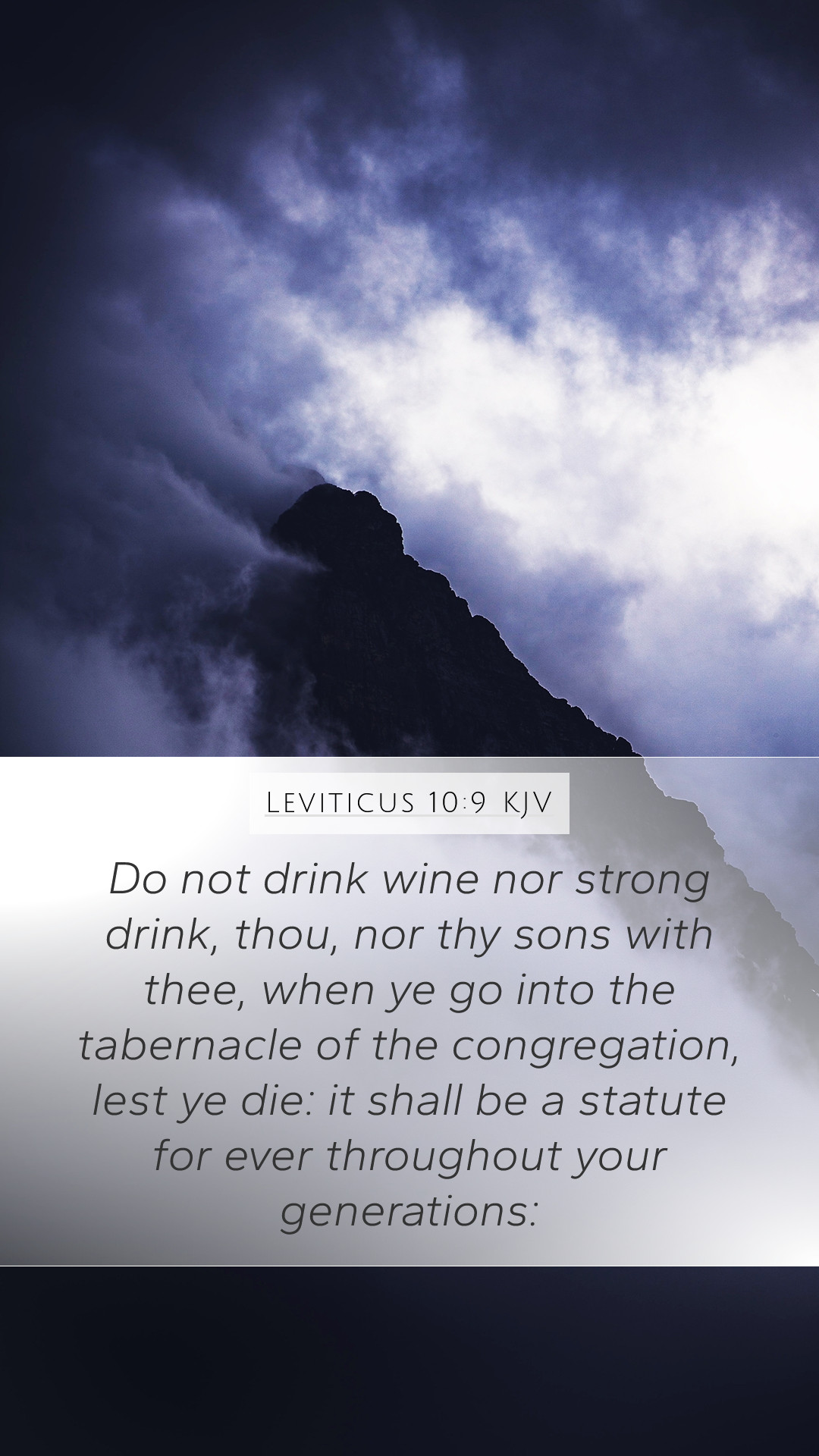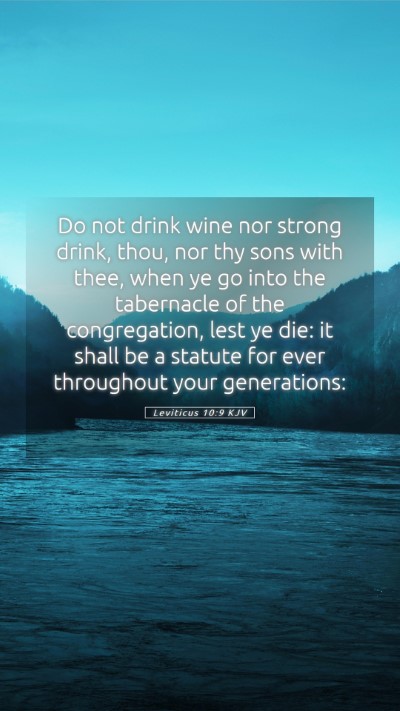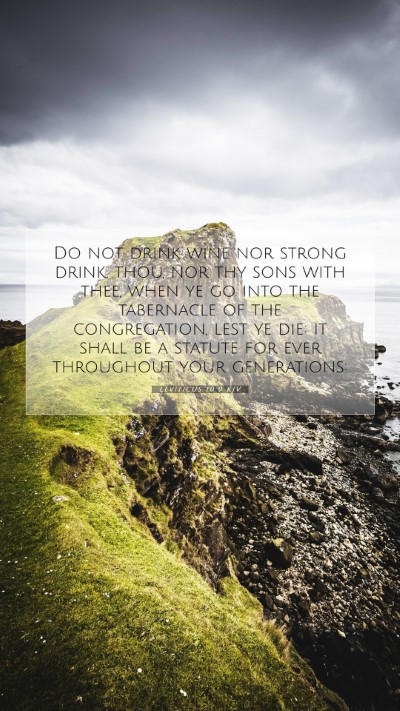Bible Verse Meanings
This verse addresses the conduct expected of the priests when performing their sacred duties in the tabernacle. The prohibition against consuming alcohol serves to ensure that they maintain a clear mind and spiritual focus when serving God. Both Matthew Henry and Albert Barnes suggest that this divine instruction highlights the importance of holiness and reverence in worshiping God. Adam Clarke adds that drunkenness compromises one's ability to act with the necessary discernment in service and matters of spiritual governance.
Bible Verse Interpretations
Interpreting Leviticus 10:9 involves understanding the broader context of the priesthood in Israel. Matthew Henry suggests that the priests were set apart for God's service, and any behavior contrary to this sanctified role could lead to disastrous outcomes, both for themselves and the community. Albert Barnes comments on how drinking could lead to poor judgments, thereby affecting their sacred duties. This verse underlines the serious nature of the priestly responsibilities and the standards expected of those who mediate between God and His people.
Bible Study Insights
- Spiritual Clarity: The call to abstain from alcohol emphasizes the need for priests to possess mental clarity and spiritual focus while in service to God.
- Continued Vigilance: The reminder that this is an everlasting statute shows that God desires a consistent standard of holiness among His people.
- Covenantal Relationship: Adherence to these guidelines reinforced the priests' special relationship with God, illustrating how their actions had implications for the entire community.
Explanation of Context
The background of this command is rooted in the aftermath of the deaths of Nadab and Abihu, who offered unauthorized fire before the Lord. This incident, described in Leviticus 10:1-2, prompted God to emphasize the need for stringent adherence to His commands. The implications of this statute extend beyond mere abstinence from alcohol; it calls for a life of holiness and a serious commitment to the duties of the priesthood.
Application of Scripture
To apply Leviticus 10:9 to contemporary life involves recognizing the principles of holiness and dedication in our own worship and service. While the specific context of priestly duties may not directly translate to modern believers, the underlying principle encourages all Christians to approach God with reverence and intentionality. Reflecting on this verse can lead to discussions on how believers maintain focus during worship and live out their faith responsibly.
Cross References
- Exodus 28:35 - Discusses the priestly garments and the necessity of holiness.
- Deuteronomy 24:13 - Encourages practices that respect the sacredness of God’s commandments.
- 1 Peter 1:15-16 - Calls believers to be holy as God is holy, echoing the call for a sanctified life.
Conclusion
Leviticus 10:9 serves as a reminder of the sacredness of God’s calling and the standards He expects of those who serve Him. Understanding this verse within its historical and cultural context enhances our Bible verse understanding and illustrates the enduring significance of living a life of holiness and integrity in our worship practices. Engaging with this scripture can inspire meaningful discussions in Bible study groups as individuals seek to deepen their biblical exegesis and biblical understanding.


